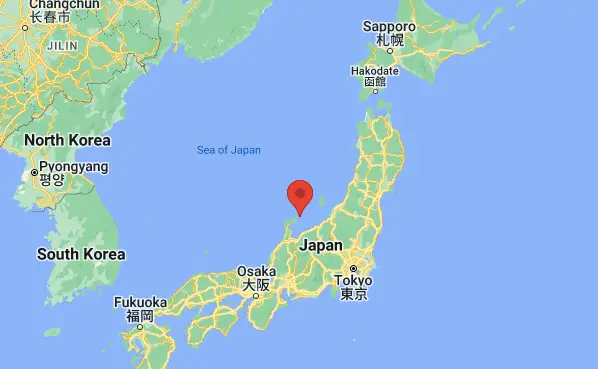Breaking News
80 Years On: Japan Rings Nagasaki Cathedral Bells in Solemn Tribute to Atomic Bomb Victims
The Nagasaki bombing killed an estimated 74,000 people, following the Hiroshima attack that killed approximately 140,000. Japan surrendered six days later, on August 15, bringing World War II to an end. While historians continue to debate whether the bombings hastened the war’s conclusion and prevented greater loss of life, many survivors — known as hibakusha — have endured decades of trauma, both physical and emotional.

Japan on Saturday marked the 80th anniversary of the atomic bombing of Nagasaki with a solemn ceremony, highlighted by the historic ringing of the twin bells of the city’s iconic Immaculate Conception Cathedral — the first time both have chimed together since the bomb fell on August 9, 1945.
At exactly 11:02 a.m. — the moment the United States dropped the atomic bomb on the southwestern port city, just three days after Hiroshima — the newly restored northern bell tolled alongside its counterpart, commemorating one of the darkest moments in human history.
Heavy rains in the morning cleared just in time for the remembrance ceremony, where Nagasaki’s mayor, Shiro Suzuki, delivered a stark warning to the world:
“Eighty years have passed, and who could have imagined that the world would become like this?
A crisis that could threaten the survival of humanity, such as a nuclear war, is looming over each and every one of us living on this planet.”
He called for all armed conflicts to “stop immediately.”
The Nagasaki bombing killed an estimated 74,000 people, following the Hiroshima attack that killed approximately 140,000. Japan surrendered six days later, on August 15, bringing World War II to an end. While historians continue to debate whether the bombings hastened the war’s conclusion and prevented greater loss of life, many survivors — known as hibakusha — have endured decades of trauma, both physical and emotional.
One of them, 93-year-old Hiroshi Nishioka, spoke during the event. Just three kilometers from the epicenter as a teen, he shared haunting memories:
“Even the lucky ones (who were not severely injured) gradually began to bleed from their gums and lose their hair, and one after another they died. Even though the war was over, the atomic bomb brought invisible terror.”
Nagasaki resident Atsuko Higuchi, 50, told AFP the anniversary helped ensure the tragedy would not be forgotten.
“It made me happy that everyone would remember the city’s victims. Instead of thinking that these events belong to the past, we must remember that these are real events that took place.”
The red-brick Immaculate Conception Cathedral, located just a few hundred meters from ground zero, was nearly obliterated by the blast. Rebuilt in 1959, only one of its original bells had been salvaged and restored — until now.
Thanks to a $125,000 fundraising effort led by American sociology professor James Nolan of Williams College in Massachusetts — whose grandfather worked on the Manhattan Project — a new bell was cast and installed in the cathedral’s northern tower. The effort was inspired by a Japanese Christian who had told Nolan he hoped to hear the two bells ring together once more in his lifetime.
Nolan raised the funds by giving lectures across U.S. churches about the atomic bomb and Nagasaki’s often-overlooked Christian history. Many of the city’s Christians were converted by European missionaries in the 16th century and secretly preserved their faith for over 250 years despite persecution. Some 8,500 of the parish’s 12,000 members died in the bombing.
When the new bell was unveiled earlier this year, “there were people literally in tears,” Nolan said, noting the “compassion and sadness” he encountered among American Catholics upon learning of Nagasaki’s suffering and resilience.
Cathedral chief priest Kenichi Yamamura called the bell restoration “a sign of the greatness of humanity.”
“It’s not about forgetting the wounds of the past but recognising them and taking action to repair and rebuild, and in doing so, working together for peace,” he said.
“We should not respond to violence with violence, but rather demonstrate through our way of living, praying, how senseless it is to take another’s life.”
This year’s commemorations were attended by representatives from nearly 100 countries. Notably absent was Russia, which has been excluded since its 2022 invasion of Ukraine. Israel, whose ambassador was not invited last year due to the war in Gaza, was present this time.
As the bells of Nagasaki echoed once again, they carried a message of remembrance, reconciliation, and an urgent call for peace in a world still haunted by the specter of nuclear conflict.









